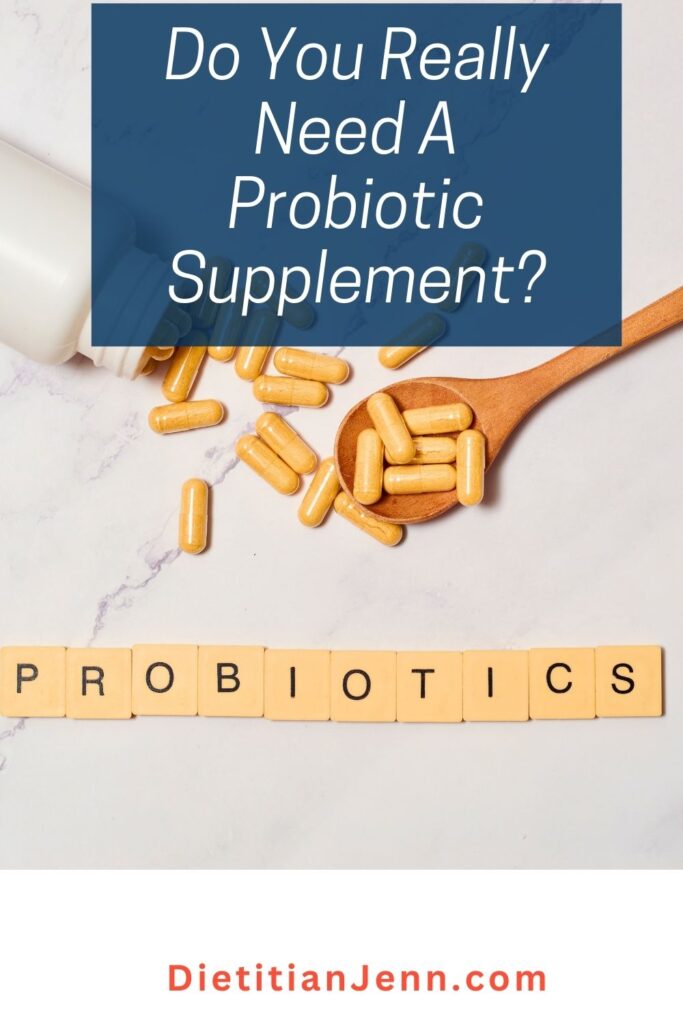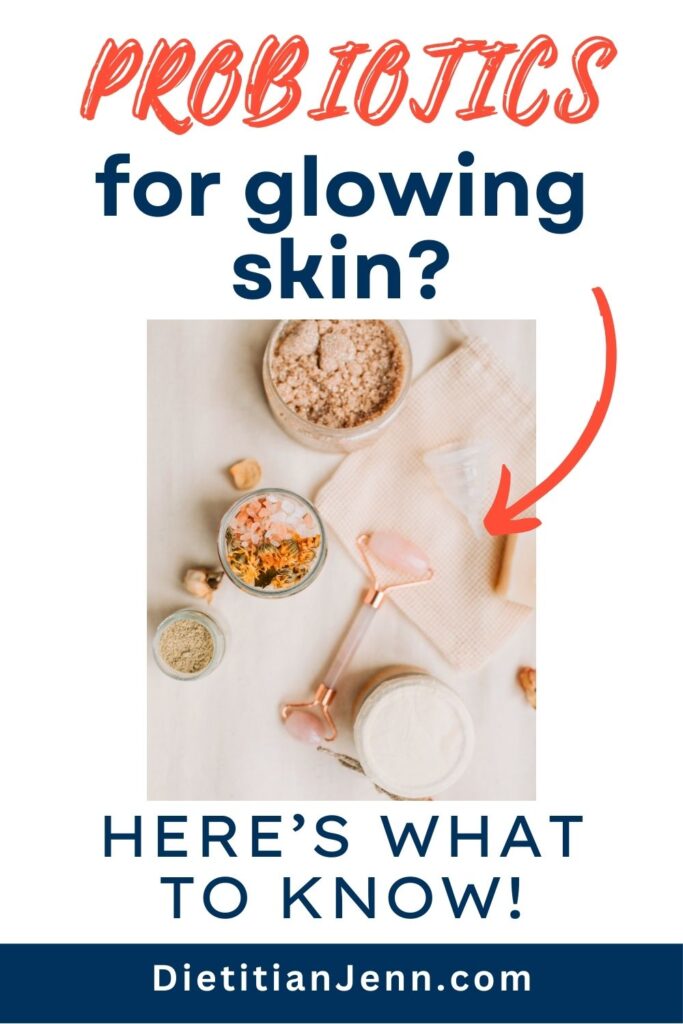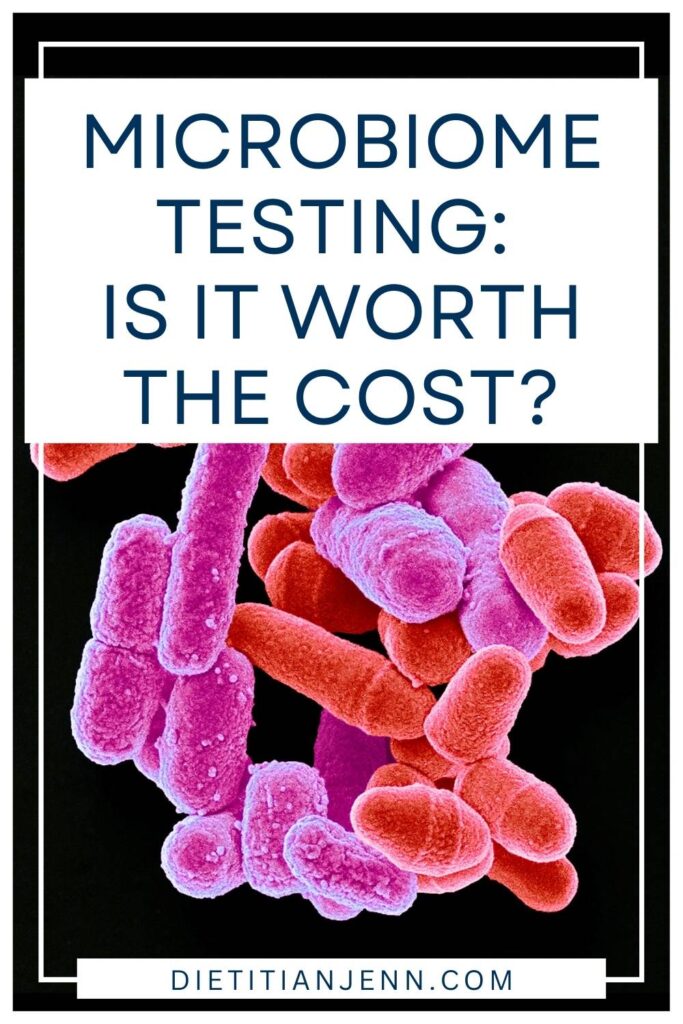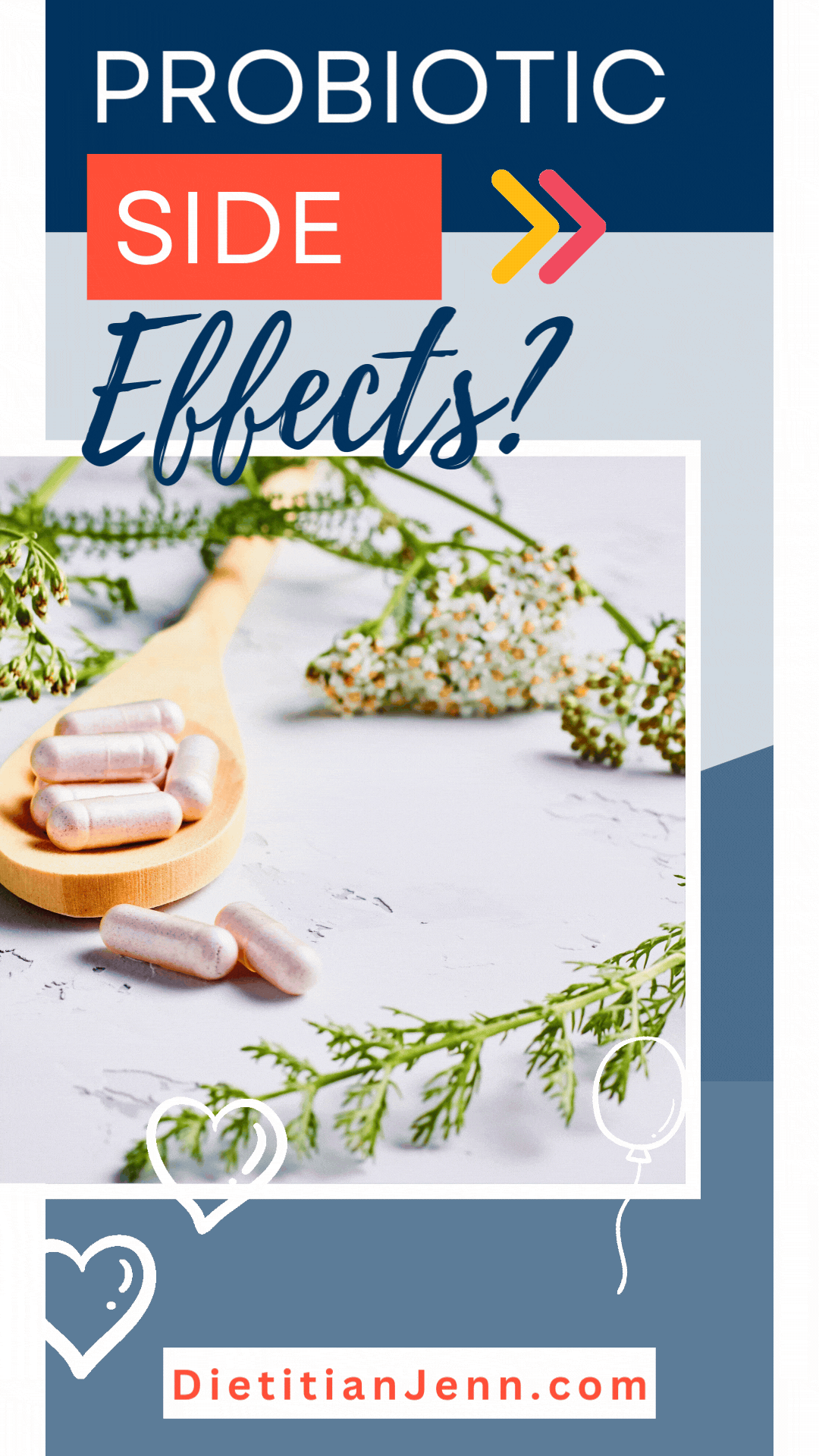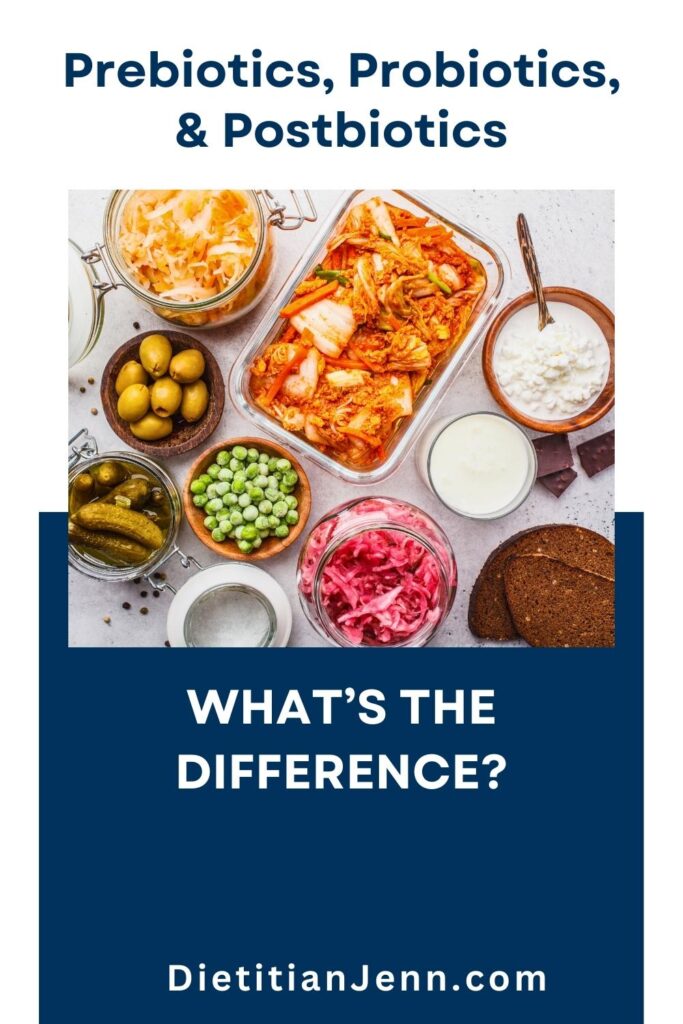Table of Contents
You’ve probably heard the buzz about probiotics; those tiny, beneficial bacteria and fungi that are supposed to work wonders for your gut. Maybe you’ve seen them advertised on yogurt labels or supplement aisles, promising better digestion, stronger immunity, or even improved mood.
But do probiotics really live up to the hype? And more importantly: do you need them?
The world of probiotics can feel overwhelming. Between different strains, conflicting advice, and the sheer number of products out there, it’s hard to know what’s fact and what’s just marketing. That’s where this guide comes in.
Let’s break down exactly what probiotics are, how they work in your body, and whether they’re worth adding to your routine. You’ll also learn the best food sources of probiotics, when a supplement might be helpful, and the role your overall diet plays in gut health.
By the end, you’ll have a clear, science-backed understanding of probiotics so you can make the best choice for your body without the confusion. Let’s get started!
What Are Probiotics?
At their core, probiotics are living microorganisms, mainly bacteria and yeast, that provide health benefits when present in the right amounts.
While we often associate bacteria with illness, the truth is that our bodies are home to trillions of microbes, many of which play essential roles in digestion, immunity, and even mental health. Collectively, these helpful microorganisms are referred to as the microbiome.
When most people talk about gut microbes, they tend to focus on “good” and “bad” bacteria. However, we should really focus on the diversity and balance of our gut microbes.
These bugs all compete for the same resource, so an overfocus on one strain or species of bacteria can potentially be harmful to another species. The more diverse our gut microbes are, generally, the better, though there are classifications of bacteria that we expect to be predominant over others.
Where Do Probiotics Live?
When people talk about probiotics, they’re usually referring to gut health, but these beneficial microbes exist throughout your body, including:
- Your gut
- Your skin
- Your mouth
- Your lungs
- Your urogenital system
Probiotics vs. Prebiotics vs. Postbiotics: What’s the Difference?
The world of gut health is bigger than just probiotics! Here’s how they fit into the bigger picture:
- Probiotics → The beneficial bacteria and yeast that live in or on your body. Think of them as the “good bugs” that support your health.
- Prebiotics → The food that helps probiotics thrive. Prebiotics are primarily certain types of fiber found in foods like garlic, onions, bananas, and whole grains. Newer research indicates that unsaturated
- Postbiotics → The beneficial byproducts that probiotics create. One well-known postbiotic, butyrate, helps maintain gut health, supports the immune system, and may reduce inflammation.
In short, probiotics are the living microbes, prebiotics feed them, and postbiotics are the beneficial substances they produce. When all three work together, they create a thriving, balanced microbiome that supports your overall well-being.
Health Benefits of Probiotics
Probiotics do more than support digestion. They play a role in nearly every system in the body, from immune function to mental well-being. While research is still evolving, studies suggest that maintaining a balanced microbiome can have widespread benefits.
Here’s a look at some of the key areas where probiotics may have an impact.
Gut health
Your digestive system is home to trillions of bacteria that work behind the scenes to break down food, absorb nutrients, and keep everything moving smoothly. A balanced microbiome plays a key role in gut health, and managing probiotics can help maintain that balance.
Here’s how they may help with common digestive concerns:
Irritable Bowel Syndrome (IBS) Relief
IBS can be unpredictable. Some days, bloating and cramping take center stage; other days, it’s diarrhea or constipation. Research suggests probiotics may help by:
- Regulating gut speed which can reduce constipation and diarrhea.
- Decreasing bloating and gas by improving digestion and reducing gas production in the intestines.
- Calming gut inflammation, which can contribute to pain and discomfort.
- Some strains of Lactobacillus and Bifidobacterium have shown promise in easing IBS symptoms, though results vary from person to person.
Reducing Antibiotic-Associated Diarrhea
Antibiotics wipe out both harmful and beneficial bacteria, sometimes leading to diarrhea as the gut microbiome becomes unbalanced. Certain probiotic strains, like Saccharomyces boulardii and Lactobacillus rhamnosus GG, may help by:
- Replenishing beneficial bacteria that antibiotics eliminate.
- Preventing harmful bacteria from overgrowing, reducing the risk of infection-related diarrhea.
- Strengthening the gut lining, which helps prevent irritation and inflammation.
If you’re taking antibiotics, incorporating probiotic-rich foods or supplements may help keep your digestion on track.
Potential Benefits for Crohn’s Disease and Ulcerative Colitis
Inflammatory Bowel Disease (IBD), which includes Crohn’s disease and ulcerative colitis, involves chronic inflammation of the digestive tract. While probiotic supplementation isn’t a cure, some studies suggest they might:
- Support gut healing by reducing inflammation in mild to moderate cases.
- Help maintain remission in ulcerative colitis, particularly with Escherichia coli Nissle 1917 and certain Lactobacillus strains.
- Aid digestion and nutrient absorption
However, probiotics aren’t always beneficial for those with IBD. Some people may find that certain strains worsen symptoms
Additionally, probiotic supplementation should be avoided when an individual is in an active flare, particularly a severe one.
With the gut so inflamed, there is a big chance that a “leaky gut” can enable these bacteria to move outside of the GI tract. They may not be beneficial bacteria there, potentially causing a very serious abdominal infection.
Working with a healthcare provider before trying probiotics for IBD management is essential.
Immune System Support
Did you know about 70% of your immune system cells reside in your gut? Your microbiome plays a huge role in regulating immune responses, helping your body fight off infections while preventing unnecessary inflammation. Probiotics can support immune function in several ways:
Reducing the Severity and Frequency of Colds & Infections
No one enjoys getting sick, but a well-balanced gut microbiome may help keep your immune system strong. Some probiotic strains, particularly Lactobacillus and Bifidobacterium, have been studied for their ability to:
- Enhance the production of protective antibodies that fight viruses and bacteria.
- Stimulate immune cells, such as natural killer (NK) cells and T-cells, which help detect and eliminate pathogens.
- Shorten the duration of colds and respiratory infections—some studies suggest probiotics may reduce sick days, particularly in children and older adults.
Eating probiotic-rich foods regularly (like yogurt, kefir, and fermented vegetables) may help support your immune defenses, especially during cold and flu season.
Regulating Inflammation & Autoimmune Conditions
A balanced gut microbiome helps keep inflammation in check. Since chronic inflammation is linked to autoimmune conditions (like rheumatoid arthritis, lupus, and multiple sclerosis), researchers are exploring whether probiotics might help manage symptoms by:
- Promoting a healthy balance of gut bacteria, which can influence immune responses.
- Reducing inflammatory markers, such as C-reactive protein (CRP) and cytokines, which are often elevated in autoimmune conditions.
- Regulating gut permeability, sometimes called “leaky gut,” which may play a role in certain autoimmune diseases.
While research is ongoing, some people with autoimmune conditions find that specific probiotic strains help manage symptoms. Responses vary, so it’s important to take an individualized approach.
Mental Health & The Gut-Brain Connection
Your gut and brain are in constant communication; so much so that the gut is often called the “second brain.” This connection, known as the gut-brain axis, means that the bacteria in your digestive system can influence everything from mood to mental clarity.
Research suggests that certain probiotic strains may support mental well-being by:
Producing Chemicals That Influence Mood
Probiotics aren’t just for digestion. They actually help produce and regulate key neurotransmitters (chemical messengers), including:
- Serotonin – Often called the “feel-good” hormone, serotonin plays a role in mood stability, sleep, and appetite.
- Dopamine – A neurotransmitter linked to motivation, pleasure, and focus. Some probiotic strains may influence dopamine pathways, potentially impacting conditions like ADHD.
- GABA (Gamma-Aminobutyric Acid) – A calming neurotransmitter that helps reduce stress and anxiety. Specific Lactobacillus and Bifidobacterium strains have been linked to increased GABA production.
A diet rich in prebiotic fibers (found in plant-based foods like garlic, onions, bananas, potatoes, and oats) can help nourish these beneficial bacteria, supporting optimal neurotransmitter production.
Potential Benefits for Depression, Anxiety, and Cognitive Health
While research is still developing, early studies suggest probiotics may play a role in mental health by:
- Reducing symptoms of depression and anxiety – Some studies show that probiotic supplementation can lead to lower cortisol (stress hormone) levels and improved emotional regulation.
- *Note: Findings are conflicting on this. Further, more robust studies are needed before setting dietary or supplementation recommendations.
- Supporting cognitive function – Emerging research suggests probiotics may have neuroprotective effects, potentially benefiting conditions like Alzheimer’s and mild cognitive impairment.
- Modulating the stress response – A balanced gut microbiome may help regulate the HPA (hypothalamic-pituitary-adrenal) axis, the system that controls how your body responds to stress.
Though probiotics aren’t a standalone treatment for mental health conditions, they may be a helpful tool alongside other interventions like therapy, medication, and a balanced diet.
Skin Health
It is important to note that the skin and gut microbiomes are different. Good bacteria (probiotics) on the skin act as a barrier against infection-causing bacteria. That being said, there is some crossover (the gut-skin axis), and researchers are starting to pay more attention to the skin microbiota as a potential treatment option for various skin conditions.
Research suggests probiotics may play a role in:
Managing Acne, Rosacea, and Eczema
Inflammation is a common thread in many skin conditions, and certain probiotic strains may help by:
- Regulating the immune response – A balanced microbiome can help reduce overactive immune responses that contribute to redness, irritation, and breakouts.
- Supporting the skin barrier – Some probiotics help maintain skin hydration and repair, making them beneficial for conditions like eczema.
- Balancing oil production – Early studies suggest that probiotics may influence sebum (oil) production, which can impact acne severity.
The Possible Link Between Gut Health and Seasonal Allergies
If you struggle with seasonal allergies, your gut bacteria may play a role. Some research suggests that an imbalanced microbiome can contribute to an overactive immune response, potentially worsening allergy symptoms. Probiotics may help by:
- Regulating histamine levels – Certain probiotic strains may reduce excess histamine, which is responsible for allergy symptoms like itching and congestion.
- Strengthening the gut lining – A healthier gut barrier may help prevent unwanted immune reactions that could contribute to allergies.
While more research is needed, supporting your gut microbiome with a fiber-rich, plant-forward diet, and probiotic foods may be a simple way to help both your skin and seasonal allergies.
Urogenital Health
For those prone to recurrent yeast infections, UTIs, or bacterial vaginosis, probiotics may help maintain a healthy balance of bacteria in the vaginal and urinary tract. Some research suggests that certain strains of Lactobacillus may help prevent infections in children by keeping harmful bacteria in check.
Oral Health
Your mouth has its own microbiome, too! A balanced oral microbiome is essential for healthy teeth and gums, and probiotics may help by:
Reducing Cavities and Gum Disease
- Certain bacteria can help inhibit the growth of harmful bacteria linked to cavities and periodontal disease.
- The study linked above notes that some strains of Lactobacillus and Bifidobacteria can cause cavities, and some seem to help prevent them. Both of these groups of bacteria are considered very good for the gut.
- This supports the idea that the difference between a “good” bacterium and a “bad” bacterium can be more specific than a species! It also supports the idea that a probiotic species is only “good” when it’s in the environment it belongs in.
- Probiotics may also lower acidity in the mouth, making it a less hospitable environment for cavity-causing bacteria.
Supporting Overall Oral Health
- Some probiotic strains may help reduce bad breath by crowding out the bacteria responsible for odor.
- Early research suggests probiotics might reduce gum inflammation, supporting healthier gums over time.
While probiotics aren’t a cure-all, they can play a valuable role in overall health—especially when combined with a fiber-rich, plant-forward diet that naturally supports a thriving microbiome.
Best Dietary Sources of Probiotics
Eating probiotic-rich foods is one of the easiest ways to support your gut health. But not all fermented foods contain live probiotics—so it’s important to know what to look for!
Fermented Foods That Contain Live Cultures
The best food sources of probiotics include:
- Yogurt – Look for labels that say “live and active cultures.” Dairy-free yogurts made with live cultures can also be a good option.
- Kefir – A tangy, drinkable yogurt packed with probiotics. There are both dairy and plant-based versions.
- Kombucha – A fermented tea with naturally occurring probiotics. Choose brands with low sugar for the most benefit.
- Miso – A fermented soybean paste used in soups, dressings, and marinades. To keep the probiotics alive, add miso at the end of cooking instead of cooking it with the dish.
- Tempeh – A firm, fermented soybean product that’s rich in protein and probiotics.
- Kimchi & Sauerkraut – Fermented vegetables that contain probiotics—just make sure they’re raw and refrigerated, not shelf-stable.
- Fermented Pickles – Only pickles made with natural fermentation (not vinegar) contain live cultures. Look for the words “raw,” “fermented,” or “contains live cultures” on the label.
Not All Fermented Foods Have Probiotics
Some foods go through fermentation but don’t actually contain live probiotics by the time you eat them. This includes:
🚫 Most commercial sourdough bread – The heat from baking kills bacteria.
🚫 Beer & Wine – Fermentation is part of the process, but live cultures aren’t present in the final product. (Alcohol kills most bacteria)
🚫 Pasteurized or shelf-stable versions of traditionally probiotic foods, like shelf-stable sauerkraut or pasteurized kombucha. These have been heated, which destroys probiotics, and are made with alternative methods such as soaking in vinegar or brines.
Do You Need a Probiotic Supplement?
While getting probiotics from food is ideal, there are times when a supplement might be helpful. That said, not everyone needs one—so it’s essential to know when they might be beneficial and when they could cause more harm than good.
When Supplements Might Be Helpful
A probiotic supplement could be helpful if you:
- Recently took (or are taking) antibiotics – Antibiotics wipe out both harmful and beneficial bacteria. A probiotic supplement may help restore balance.
- Struggle with chronic gut issues – Some people with IBS (bloating, diarrhea, or constipation) find relief from certain probiotic strains.
- Experience recurring infections – If you frequently deal with yeast infections, UTIs, respiratory illness, or ear infections, some strains may help restore a healthy balance.
- Have mood concerns linked to gut health – Early research suggests probiotics may support mental health, including anxiety and depression, by influencing the gut-brain connection.
When Supplements Might Be Harmful
Probiotics aren’t for everyone. In some cases, they could do more harm than good, including:
- If you have a weakened immune system – People with immunodeficiency or serious illnesses should consult a doctor before taking probiotics, as introducing live bacteria can carry risks.
- During inflammatory bowel disease (IBD) flares – While some probiotics may help with remission, others can worsen symptoms in conditions like Crohn’s disease and ulcerative colitis during active flares.
- Caution with irritable bowel disease (IBS) – While probiotics may help with symptoms, some people experience the opposite and instead have an increase in bloating and pressure.
How to Choose a Good Probiotic
Not all probiotic supplements are created equal! Here’s what to look for:
✅ Strain-Specific Benefits – Different strains have different effects, so choose one that matches your needs (e.g., Lactobacillus rhamnosus GG for gut health).
✅ Quality Over High CFUs – A higher colony-forming unit (CFU) count doesn’t always mean better—what matters most is the right strain at an effective dose.
✅ Refrigerated vs. Shelf-Stable – Some probiotics need refrigeration, but others are freeze-dried and stable at room temperature. Check the label for storage instructions.
AEProBio is a free resource that lists commercial probiotic supplements and the research done on them, including what conditions were studied. I use this very frequently in my practice. Just remember that this should be a discussion with your doctor, too!
How to Test if a Probiotic Works for You
Since probiotics affect people differently, it’s crucial to track your response:
- Give it at least 3-4 weeks to notice any changes.
- Pay attention to digestion, mood, or any improvements in your specific concerns. Keeping a log of symptoms is very helpful!
- If you experience discomfort like bloating or gas, the strain may not be the right fit, or you need more help than a supplement can give you.
Supplements can be useful, but they’re not a magic fix. A well-balanced, fiber-rich diet is still the foundation of a healthy gut!
The Best Way to Support Your Probiotic Microbiome
Taking care of your gut isn’t just adding probiotics. It’s about creating an environment where beneficial bacteria can thrive. While supplements can help in certain situations, diet and lifestyle play the biggest role in maintaining a healthy microbiome.
Why Diet Is Key to a Healthy Microbiome
What you eat directly shapes your gut bacteria. A diet rich in diverse plant foods helps good bacteria flourish, while too many ultra-processed foods, added sugars, and low-fiber meals can throw things off balance.
The Role of Fiber and Healthy Fats
- Fiber is your gut bacteria’s favorite food. Prebiotic-rich foods like onions, garlic, bananas, whole grains, potatoes, and beans/legumes feed beneficial bacteria, helping them grow and produce health-promoting compounds.
- Diversity matters. Eating a variety of fiber sources supports a more diverse microbiome, which is linked to better digestion, a stronger immune system, and even improved mental health.
- So go ahead and eat your favorite veggie most often, but be sure to include the other guys, too.
- Healthy fats also play a role. Omega-3s (in flaxseeds, walnuts, and chia seeds) may help maintain a balanced microbiome and reduce inflammation. In particular, DHA and EPA (aka “fish” oil) have many benefits here, and our omnivorous and pescatarian friends and family may have a leg up on us vegetarians.
- Consider an algal supplement, especially if you don’t eat many nuts, seeds, olives, or avocados.
- Phytochemicals may also help. These compounds in many plants, mainly polyphenols, also appear to benefit probiotics. Dark chocolate and berries are particularly high in these compounds.
Other Lifestyle Factors That Impact Gut Health
Your gut microbiome isn’t just shaped by what you eat; your daily habits matter, too.
- Stress Management: Chronic stress can disrupt gut bacteria and contribute to digestive issues. Practices like deep breathing, gentle movement, or mindfulness can help. So can hobbies and positive social interactions.
- Sleep Hygiene: Poor sleep is linked to microbiome imbalances. Prioritizing consistent, quality rest can support both gut and overall health.
- Medications: Certain medications, including antibiotics, acid reducers, and even NSAIDs, can alter gut bacteria. If you need these medications regularly, a diet rich in probiotics and prebiotics may help mitigate some effects.
A thriving microbiome isn’t about perfection—it’s about small, consistent habits that nourish your gut over time. A plant-forward diet, quality sleep, and stress management can go a long way in keeping your microbiome (and overall health) balanced.
What About Microbiome Testing?
At-home microbiome tests (or even those that some “alternative” providers offer) promise to analyze your gut bacteria and provide personalized health insights—but are they worth it?
- They’re expensive – Many tests cost more than $200. I’ve seen some as high as $700! And since gut bacteria fluctuate, results can change over time.
- They don’t evaluate the entire GI tract – Fecal samples carry bacteria primarily from the large intestine/colon. This misses the mouth, stomach, and the entire length of the small intestine. Claims that fecal testing can identify H. pylori or SIBO are blatantly false.
- Accuracy is questionable – These tests can tell you which bacteria are present but don’t always reflect how well those bacteria function. Additionally, how the sample is handled can drastically change the results (think hot summer shipping or cross-contamination of samples).
- Limited practical use – Even if a test accurately identifies your gut bacteria, we don’t have clear guidelines on what a “perfect” microbiome looks like. And there are no “fingerprints” of microbiomes that can accurately predict a disease state. You might get recommendations, but they’re often general advice (eat more fiber, try fermented foods) that you could follow without the test.
For now, focusing on a diverse, plant-rich diet is the best way to support a healthy microbiome. No expensive test required!
Conclusion & Next Steps
Your gut microbiome plays a huge role in your overall health—from digestion to immune function, mental well-being, and even skin health. Probiotic supplements can be a helpful tool, but the best way to support your microbiome is through a balanced, fiber-rich diet and gut-friendly lifestyle habits.
If you’re looking to make small, sustainable changes, start with food first:
- Incorporate more probiotic-rich foods like yogurt, kefir, miso, and fermented vegetables.
- Eat a variety of fiber-rich plant foods to fuel beneficial bacteria.
- Support your gut beyond diet by prioritizing sleep, managing stress, and being mindful of medications that impact gut health.
Your gut is unique, and supporting it doesn’t have to be complicated. Small, consistent choices can help create a microbiome that works for you, not against you.
Frequently Asked Questions
They can! Probiotics help regulate digestion, so if you’re dealing with constipation, they may help get things moving. On the flip side, certain strains can also help with diarrhea by restoring balance in the gut. Everyone’s response is different, so it may take some trial and error to find what works best for you.
For most people, probiotics are safe and can be beneficial. However, those with weakened immune systems (such as individuals undergoing chemotherapy or with certain chronic illnesses) should consult a healthcare provider before taking them, as probiotics could pose a risk in these cases.
While taking too many probiotics isn’t necessarily dangerous, it can lead to bloating, gas, or mild digestive discomfort—especially if your body isn’t used to them. More isn’t always better; the key is finding the correct strain and dose for your needs.
It depends on why you’re taking them. Some people notice digestive improvements within a few days, while immunity, skin health, or mood benefits may take weeks or months. Consistency is important!
There’s no one-size-fits-all answer, but many experts suggest taking them with a meal to help the bacteria survive stomach acid. If your probiotic has specific instructions, follow those. Otherwise, the best time is whenever you’ll remember to take them consistently.
Yes, many fermented foods (like kimchi, sauerkraut, and yogurt) contain histamines, which can be a problem for people with histamine intolerance. If you notice symptoms like headaches, flushing, or digestive discomfort after eating fermented foods, it may be worth exploring lower-histamine options or working with a healthcare provider.
Probiotics are the beneficial bacteria themselves.
Prebiotics are the food that helps those bacteria thrive (mostly fiber-rich foods like onions, garlic, and whole grains).
Synbiotics combine probiotics and prebiotics in one product to maximize benefits.
Postbiotics are the metabolic output of the probiotics, which often have their own health benefits and may still be present in fermented foods that have been pasteurized.
When introducing probiotics, some people experience temporary bloating, gas, or mild stomach upset. This usually goes away as your gut adjusts. You may need a different strain, a lower dose, or to discontinue supplementation if side effects persist.
Jennifer Hanes MS, RDN, LD is a registered dietitian, mom, wife, and vegetarian in North Texas. She has dedicated Dietitian Jenn to be a source of information, ideas, and inspiration for people like her, vegetarians that live with people with different dietary beliefs and/or needs in a multivore household.



